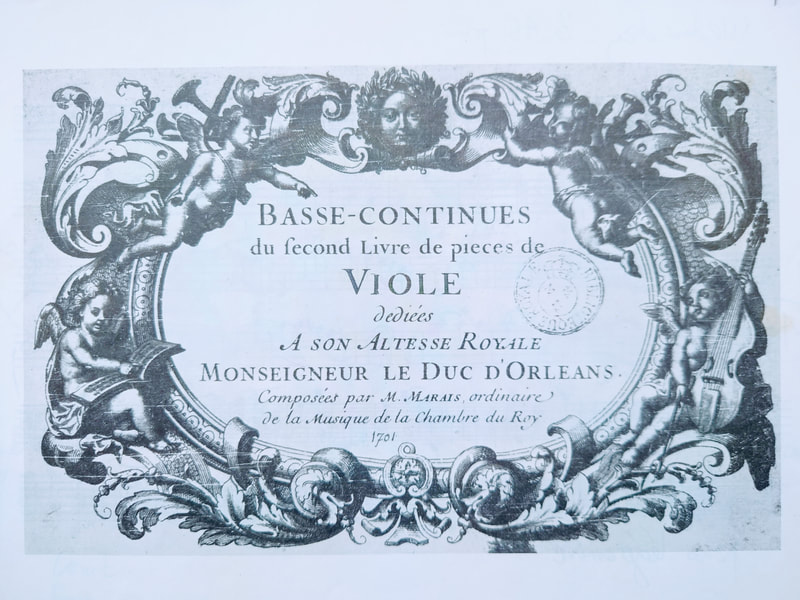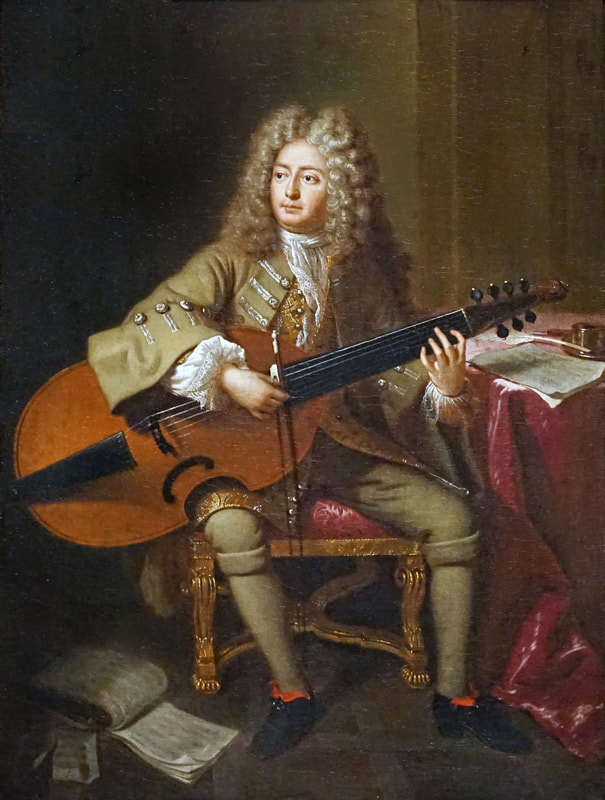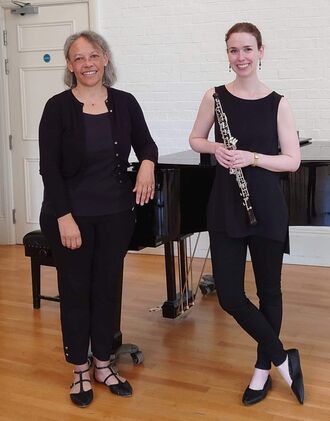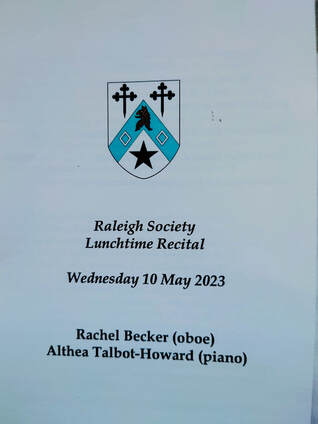New Work
Fantasia - La Folia
for Solo Woodwind
Duration: 8 mins
Level: Advanced
A new solo fantasia launches from the principal theme of Marin Marais' renowned work, Les Folies d'Espagne (1701) - and lands in a fiery extravaganza of notes!
Commissioned Work EMBARGOED until 04 NOVEMBER 2024, when it will go on GENERAL SALE.
Only the Consortium members may perform the piece during the exclusivity period
Fantasia - La Folia
for Solo Woodwind
Duration: 8 mins
Level: Advanced
A new solo fantasia launches from the principal theme of Marin Marais' renowned work, Les Folies d'Espagne (1701) - and lands in a fiery extravaganza of notes!
Commissioned Work EMBARGOED until 04 NOVEMBER 2024, when it will go on GENERAL SALE.
Only the Consortium members may perform the piece during the exclusivity period
INSTRUMENTATION
OBOE, FLUTE, BASSOON, SAXOPHONE, RECORDER
OBOE, FLUTE, BASSOON, SAXOPHONE, RECORDER
Commissioning Consortium & Premieres
|
Lead Commissioner: Dr. Rachel Becker
Senior Commissioner (Bassoon): Dr. Conor Bell Senior Commissioner (Flute): Dr. Nicole Molumby Senior Commissioner (Saxophone): Dr. Joshua Thomas List of Co-Commissioners Rachel Becker gives the WORLD PREMIERE on 03 November 2023
|
The World Premiere took place on 03 November 2023
The Bassoon World Premiere took place on 12 November 2023. Watch on Facebook, starting at 37:00 Joshua Thomas gives the SAX WORLD PREMIERE on 11 March 2024 (29:38)
|
NEW RECORDING!
(Published 02 April 2024)
Conor Bell performs Fantasia - La Folia for solo bassoon
(Published 02 April 2024)
Conor Bell performs Fantasia - La Folia for solo bassoon
~Reference Videos~
|
|
|
|
Composing
Fantasia - La Folia
Fantasia - La Folia
|
When oboist Rachel Becker and I performed two of my original works together at Newnham College, Cambridge in May, she also played some solo couplets from Marais' Les Folies d'Espagne, using an edition in G minor. It was lovely to hear this piece again - and played so stylistically - after having performed it so many times myself, in my previous oboe recital career.
In early August, she told me that she had a Marais project planned, involving a concert in November, for which she wanted some women composers to compose one couplet each. I was very interested, but unconvinced that I could do precisely what she asked – for the simple reason that I had performed the piece so often, that I would have to work very hard to avoid pastiche. Les Folies is embedded into my body and memory. |
Therefore, I thought that my best option would be to compose another fantasia - a companion piece to Fantasia Dodecaphonica - but not to tell her what I was doing, unless I felt that it was coming out alright. The beginning of the piece involved several re-writes, as it took me a couple of days to get a handle on the best approach to the material. Once I was halfway through, in mid-August, I let her know what I was up to!
La Folia/Les Folies d'Espagne - What was it?
"What is nowadays to please all the fashionable people must, as a rule, be Les Folies d'Espagne. The Folly is now coming into such vogue that everybody wishes to adorn himself with it, in dancing, playing, and singing. To make myself agreeable in all matters, I will for once join in the Spanish folly. Holla laquais! Apporte la Guitarre!"
Johann Philipp Förtsch Die grossmuthige Thalestris oder letzte Königin der Amazonen ' (Opera, 1690)
On July 24 of the year 1689, in which D' Anglebert published his " Pièces de Claveçin," Madame de Sévigné wrote to her daughter, Madame de Grignan, about a gentleman as follows : " II dąnse ces belles chaconnes, les folies ďEspagne, mais surtout les passepieds avec sa femme, d'une perfection, d'un agrément qui ne se peut représenter."
Both quotes: Fr. Niecks, Les Folies d'Espagne: A Study, The Musical Times, 1888 (JStor)
"What is nowadays to please all the fashionable people must, as a rule, be Les Folies d'Espagne. The Folly is now coming into such vogue that everybody wishes to adorn himself with it, in dancing, playing, and singing. To make myself agreeable in all matters, I will for once join in the Spanish folly. Holla laquais! Apporte la Guitarre!"
Johann Philipp Förtsch Die grossmuthige Thalestris oder letzte Königin der Amazonen ' (Opera, 1690)
On July 24 of the year 1689, in which D' Anglebert published his " Pièces de Claveçin," Madame de Sévigné wrote to her daughter, Madame de Grignan, about a gentleman as follows : " II dąnse ces belles chaconnes, les folies ďEspagne, mais surtout les passepieds avec sa femme, d'une perfection, d'un agrément qui ne se peut représenter."
Both quotes: Fr. Niecks, Les Folies d'Espagne: A Study, The Musical Times, 1888 (JStor)
Les Folies d'Espagne represents a long trend in classical music, that took off in the sixteenth century; enjoyed its heyday from 1672-1748; and persisted into the twentieth century, via a composition by Rachmaninoff.
It appears that musicologists lack complete clarity as to the precise musical meaning of the word folies/folia/follia. The persistent belief is that the music originated in a Portugese folk dance that spread to Spain, and then throughout Europe - even as far afield as the United Kingdom and Sweden. In the former country, versions of the dance were known as Faronel's Ground. One characteristic of the dance is thought to have been an increasing sense of abandon, with the music becoming faster and more frenetic, as the dance progressed. This increase in speed (usually via increasingly shortened note lengths), and variations in metre, are characteristic of most sets of folia variations. It is a feature which I also include in my fantasia, which finishes with an extended virtuosic flourish.
Musicological analysis divides the folia into two distinct phases: pre-Lully's set of variations published in 1672 (early); and post-Lully (later). The later folia - to which Marin Marais' piece belongs - was characterized by a standard, 16-bar chord progression with a fairly-standardized melody. After the initial statement of the theme, the composer would write 24 or 32 couplets (divisions/variations) over the chord progression. It is thought that at least 150 composers wrote pieces relating to la folia! The most famous mid-Baroque versions of these were composed by Corelli, Marais - and, later, Vivaldi. The theme would frequently be repeated at the end of the piece, bookending the set of divisions.
In order to avoid pastiche, I have not adopted the traditional approach to the folia couplet: neither have I retained the standardised chord progression of the later folia. If you would like to find out exactly what I have done, the piece becomes available for general purchase in November 2024.
The most famous set of folia variations for woodwind is Les Folies d'Espagne (1701) by Marin Marais (1656-1728). Although the piece was modelled on the bass viol (see photo, top), Marais intentionally produced multi-instrumental scores, and even mentioned the oboe as being one of the instruments that could play the piece.
It appears that musicologists lack complete clarity as to the precise musical meaning of the word folies/folia/follia. The persistent belief is that the music originated in a Portugese folk dance that spread to Spain, and then throughout Europe - even as far afield as the United Kingdom and Sweden. In the former country, versions of the dance were known as Faronel's Ground. One characteristic of the dance is thought to have been an increasing sense of abandon, with the music becoming faster and more frenetic, as the dance progressed. This increase in speed (usually via increasingly shortened note lengths), and variations in metre, are characteristic of most sets of folia variations. It is a feature which I also include in my fantasia, which finishes with an extended virtuosic flourish.
Musicological analysis divides the folia into two distinct phases: pre-Lully's set of variations published in 1672 (early); and post-Lully (later). The later folia - to which Marin Marais' piece belongs - was characterized by a standard, 16-bar chord progression with a fairly-standardized melody. After the initial statement of the theme, the composer would write 24 or 32 couplets (divisions/variations) over the chord progression. It is thought that at least 150 composers wrote pieces relating to la folia! The most famous mid-Baroque versions of these were composed by Corelli, Marais - and, later, Vivaldi. The theme would frequently be repeated at the end of the piece, bookending the set of divisions.
In order to avoid pastiche, I have not adopted the traditional approach to the folia couplet: neither have I retained the standardised chord progression of the later folia. If you would like to find out exactly what I have done, the piece becomes available for general purchase in November 2024.
The most famous set of folia variations for woodwind is Les Folies d'Espagne (1701) by Marin Marais (1656-1728). Although the piece was modelled on the bass viol (see photo, top), Marais intentionally produced multi-instrumental scores, and even mentioned the oboe as being one of the instruments that could play the piece.





